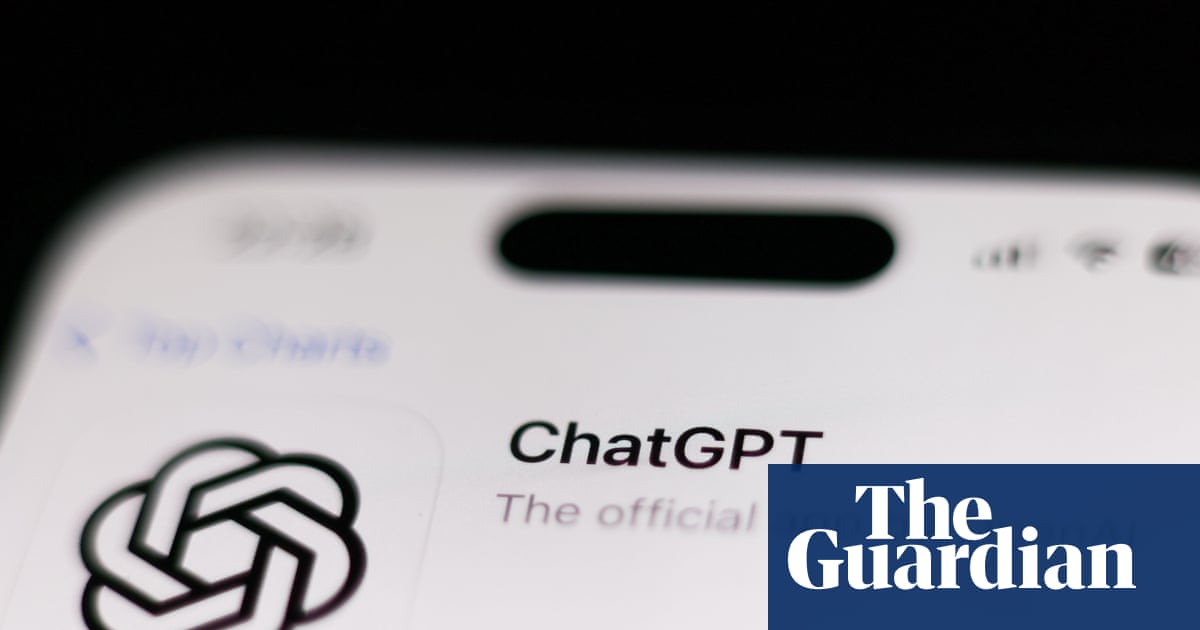Finding is one of most direct statements from the tech company on how AI can exacerbate mental health issues
More than a million ChatGPT users each week send messages that include “explicit indicators of potential suicidal planning or intent”, according to a blogpost published by OpenAI on Monday. The finding, part of an update on how the chatbot handles sensitive conversations, is one of the most direct statements from the artificial intelligence giant on the scale of how AI can exacerbate mental health issues.
In addition to its estimates on suicidal ideations and related interactions, OpenAI also said that about 0.07 of users active in a given week – about 560,000 of its touted 800m weekly users – show “possible signs of mental health emergencies related to psychosis or mania”. The post cautioned that these conversations were difficult to detect or measure, and that this was an initial analysis.



The fact they have data on this isn’t surprising, but it should be horrifying for anyone using the platform. This company has the data from every sad, happy, twisted, horny, and depressing reply from every one of their users, and they’re analyzing it. Best case, they’re “only” using it to better manipulate users into staying longer on their apps. More likely they’re using it for much more than that.
They’d better fucking have data on this because it is horrendously irresponsible to let people talk to bots that imitate real conversations not track whether your bots are encouraging depressed people to kill themselves.
That’s a good point. Still doesn’t really comfort me when they’re not subject to the same standards and ethics of actual mental health workers.
There is an opportunity (or there would be, if these companies were in sane jurisdictions) to try and apply some standards, because only a handful of companies are capable of hosting these bots.
However, there are limitations because of the inherent nature of what they are. Namely, they are relatively cheap, so you can host a number of conversations with them that it is completely unmanageable to manually monitor, and they are relatively unpredictable, so the best-written safety rails will have problems (both false positives and false negatives).
Put together, that means you can’t have AI chatbots which don’t sometimes both: spout shit they really should not be doing, such as encouraging suicide or reinforcing negative thoughts; and erroneously block people because the system to try and avoid that triggered falsely. And the less of one you try to have, the more of the other.
That implies, to me, that AI chatbots need to be monitored for harm so that those systems can be tuned - or if need be so that the whole idea can be abandoned. But that also means that the benefits of the system need to be analysed, because it’s no good going “ChatGPT is implicated in 100 suicides - it must be turned off” if we have no data on how many suicides it may have helped prevent. As a stochastic process that mimics conversation, there will surely be cases of both.